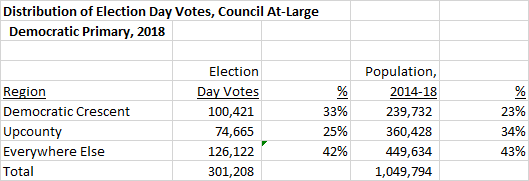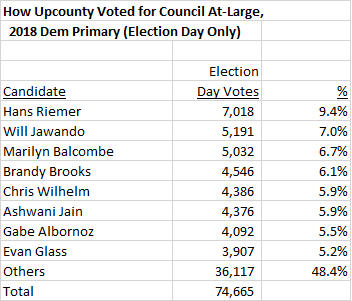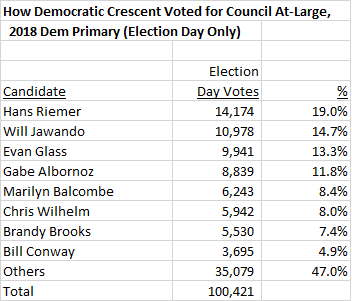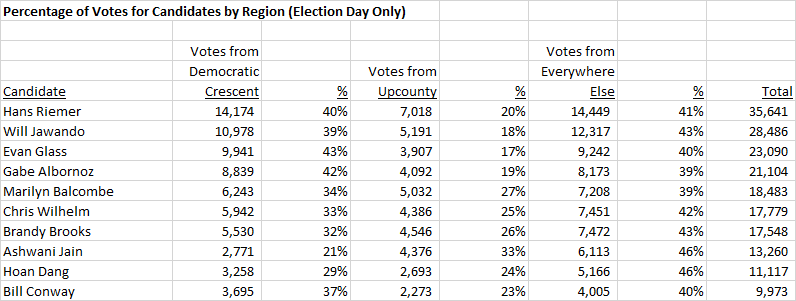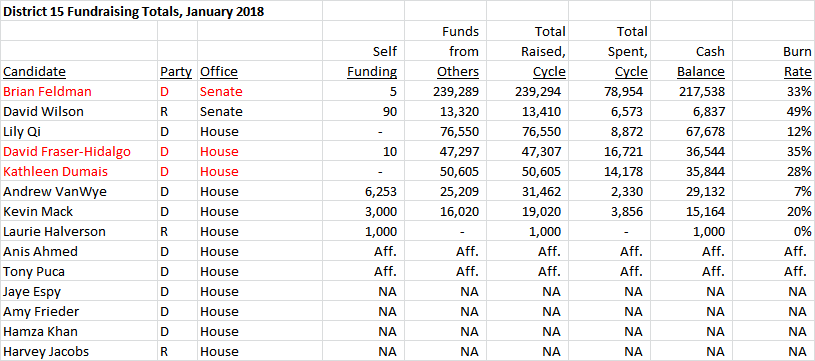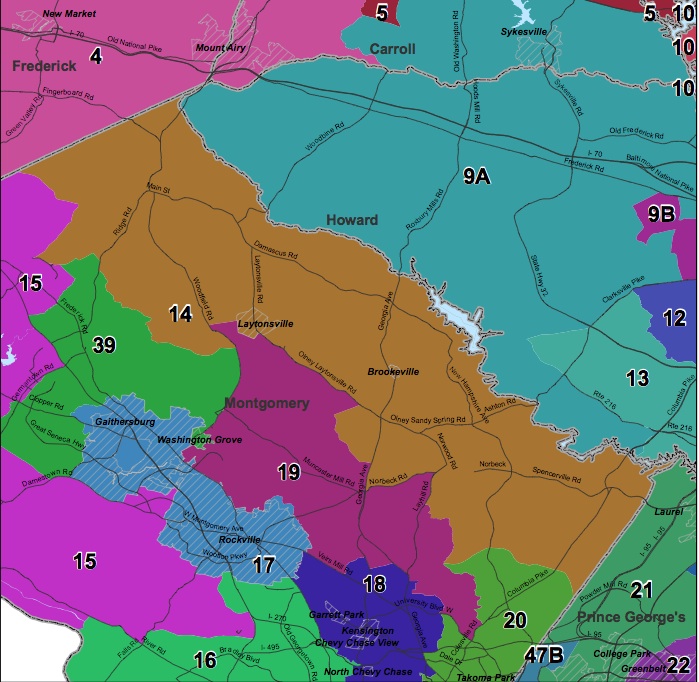Guest blog by Delegate Eric Luedtke (District 14).
It should not be controversial to say that governments have a responsibility to address the needs of all of their constituents. I appreciate Adam’s thoughts and writing, and how much he relishes the role of provocateur, though I take issue with his characterization of my recent op-ed in Bethesda Beat as blasting county government. I think it’s more along the lines of constructive criticism among friends.
While the analysis of recent electoral outcomes in Montgomery County’s upcounty and downcounty regions are interesting to those of us who follow county politics closely, the average resident of the county is much more interested in having problems in their communities addressed. I believe that much of the support for Question D was driven by a feeling that upcounty does not get its fair share of attention from county government. I should add, by the way, that a similar feeling is prevalent in east county as well.
Of course, there are those in county government who take issue with that suggestion. I recall, for example, a pair of conversations I had with one former member of the County Council. In one conversation, I was told that the commercial blight at the Burtonsville Crossing shopping center was happening because, and I quote, “Burtonsville is not Bethesda,” and that the county shouldn’t waste money trying to help Burtonsville address the profound problem of a decaying town center. In another conversation with the same person, I was upbraided for suggesting that the county didn’t pay enough attention to Burtonsville. The irony was astounding.
I’ve had folks in county government suggest that this perspective is wrong, that residents of every community in the county feel that problems in their particular community are under-addressed. Perhaps. But, again, as just an example, I’ve been working on the Burtonsville crossing issue for more than a decade now, since before I was elected, and with the notable exception of Councilman Hucker, I’ve never seen county government writ large act on it with any kind of urgency. It’s been an afterthought, if that.
If folks in county government want to demonstrate that my critique is off base, they can do so relatively easily.
If the county can create significant incentives for new development around downcounty metro stations, why can’t they do so to incent redevelopment at Burtonsville crossing? Or, alternatively, after a decade of blight, why can’t the county find a way to fine the property owner for failing to maintain the property as a viable commercial site? Or use eminent domain to put the property to a use that will actually benefit Burtonsville residents?
If complaints that the county doesn’t pay enough attention to agriculture are wrong, will the next county budget include the miniscule amount of money necessary to reopen the venison donation facility in Laytonsville? Will it include a commitment of $1 million a year from the general fund for agricultural land preservation?
If concerns that upcounty transportation isn’t enough of a priority are misplaced, will the 97/28 interchange have a higher priority in the next county transportation priorities letter? Will the county commit to funding more bicycle and pedestrian improvements around upcounty schools, such as a better sidewalk network in Damascus so kids can get to Damascus High School and Baker Middle School more easily?
Most residents of the county don’t follow the precinct results of elections. They just want the potholes filled, the congestion addressed, the schools funded, and they want to feel like they have a chance to be heard. The feeling that their communities weren’t being heard drove a lot of well meaning people to support Question D. Those of us in elected office can choose to recognize that concern, and do something about it. Or, we can simply ignore it, pretend like the vote for Question C solved the problem, and move on. But if the latter is the reaction, then we will almost certainly see more Question D’s in the future. I should amend my earlier op-ed. Representation matters, in every corner of the county. And when it’s not provided, residents will demand it, one way or the other.
Delegate Eric Luedtke is the House Majority Leader and has represented District 14 since 2011.

